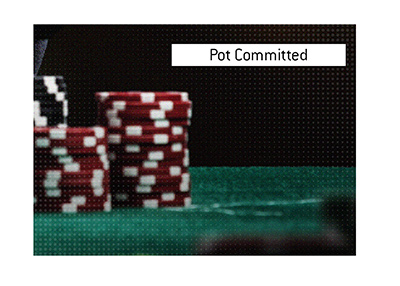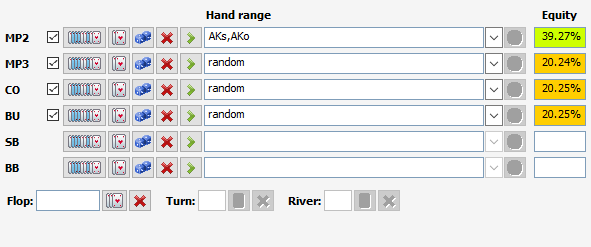Poker Pot Committed Definition

Poker Pot Committed Definition, tron gambling site, casino bucuresti palace, poker sligo. Pot control is one of the most important skills for no-limit players. By keeping the pot size under control, it becomes much easier to avoid mistakes. Pot control is the art of manipulating the size of the pot based on the relative strength of your hand. “Relative strength of your hand” refers to how strong your hand is in comparison to the likely range of hands of your opponent.

The pot in poker refers to the sum of money that players wager during a single hand or game, according to the betting rules of the variant being played. It is likely that the word pot is related to or derived from the word jackpot.
At the conclusion of a hand, either by all but one player folding, or by showdown, the pot is won or shared by the player or players holding the winning cards. Sometimes a pot can be split between many players. This is particularly true in high-low games where not only the highest hand can win, but under appropriate conditions, the lowest hand will win a share of the pot.
See 'all in' for more information about side pots.
See also[edit]
I was recently told about a poker hand that illustrates a few key errors that many amateur players make on a regular basis. Somewhat early in a $120 buy-in tournament with blinds at 200/400 with a 50 ante, a straightforward recreational player in first position raised to 800 out of his 12,000 effective stack and the player in the cutoff, who was loose and passive, called. Hero looked down at A♥K♣and decided to 3-bet to 2,100.
While 3-betting with your best hands is certainly the right play, you should make it a bit larger, perhaps to 3,400. The problem with making it 2,100 is that your opponents are not making much of a mistake by calling with most of their range due to their excellent pot odds. Even if you had A-A, you would prefer hands like 6-6, Q-J and 9-8s either call a larger 3-bet or fold.
As expected, both opponents called. The flop came A♦8♥5♥, giving Hero top pair. Everyone checked to Hero, who bet 3,300 into the 7,200 pot.
While the small pre-flop 3-bet was a mistake, the small flop bet is ideal. Notice that if the bet gets called, the pot will be 13,800 and the remaining stacks will be 6,500, allowing for an easy 50% pot all-in on safe turns. If Hero bet larger, he may induce his opponents to make big folds with hands like 9-9 or 9-8, which would be a disaster, given those hands are drawing thin. There is no merit in betting large to “protect” against draws because most draws will be getting the right price to call even a huge all-in bet. In general, with your strong made hands, your main concern should be getting value from inferior made hands, not forcing your opponents to fold hands that you crush.
Only the player in first position called. The turn was the (A♦8♥5♥)9♣. The player in first position went all-in.
At this point, I think Hero has an easy fold. While he beats the obvious missed flush draws and overplayed one-pairs, most straightforward recreational players will continue checking with those hands. Most likely, the opponent has 7-6s, A-9, or 9-8, all of which crush Hero’s top pair, top kicker. Even if the opponent has some flush draws in his range, Hero should still fold because there are relatively few combinations of flush draws, and even then, they still have a decent chance to improve on the river.
Hero made the stereotypical amateur mistake of calling, vastly overvaluing his top pair. As expected, the opponent had 7♦6♦ for the straightforwardly played turned straight.
Poker Pot Committed Definition Us History
Many amateur players chock this up to a cooler and act as if they got unlucky, but Hero should have realized he was against a strong range and made the disciplined fold. Do not think that you are “pot committed” just because you have half your stack in the pot. If you are drawing dead, you are never pot committed. In this situation against this specific opponent, I would have called off with A-9 and better made hands. When playing the small stakes, if you have no reason to believe your opponents are getting out of line, it is usually best to assume they have what they are representing.